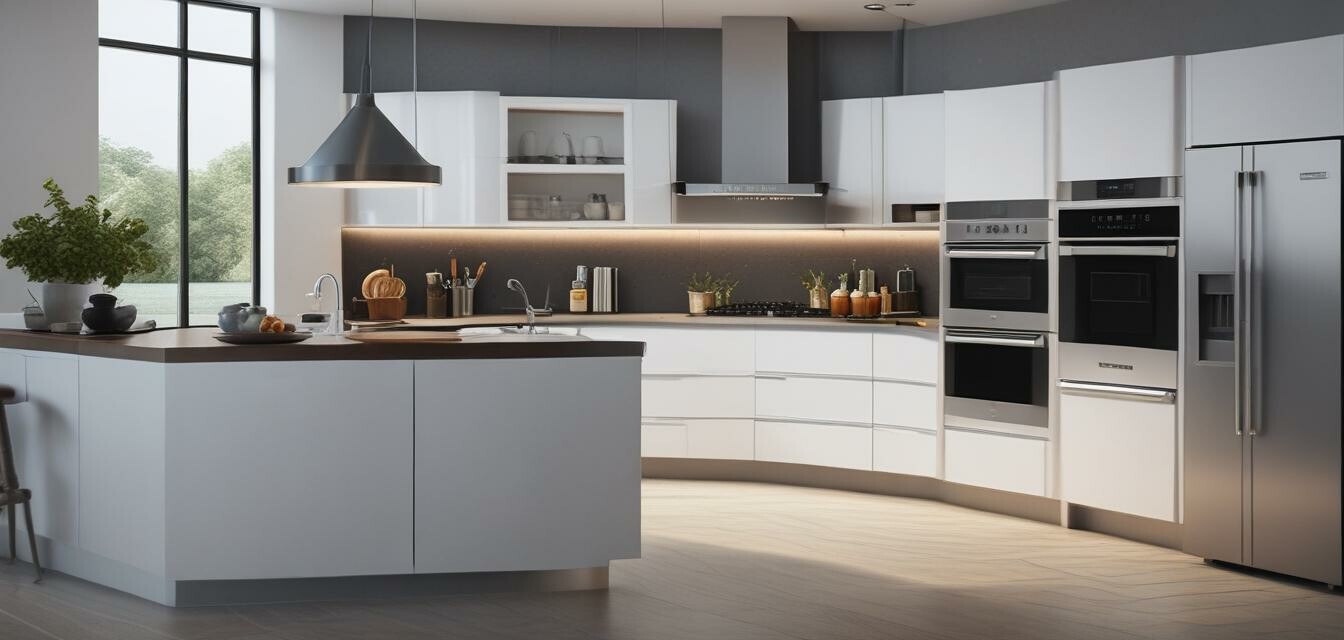
Bluetooth technology in kitchen appliances: What’s next?
Key Takeaways
- Bluetooth technology is revolutionizing how we interact with kitchen appliances.
- New features like voice control and smart notifications are on the horizon.
- Integration with smart home ecosystems will enhance convenience and efficiency.
- Sustainability trends will shape the design and functionality of appliances.
- Continued advancements promise to make cooking easier and more enjoyable.
The evolution of kitchen appliances is heavily influenced by advancements in technology, with Bluetooth taking a leading role in shaping the future. In this article, we will explore the emerging trends and predicted innovations related to Bluetooth technology in kitchen appliances, unpacking what we can expect in the coming years.
The current state of Bluetooth technology in kitchen appliances
Today's kitchen is more than just a place for cooking; it's a hub of technology designed to improve efficiency and convenience. Many appliances are now equipped with Bluetooth technology, allowing for seamless connectivity and control from mobile devices. This shift has revolutionized how we cook, making it easier to manage multiple devices simultaneously.
Common uses of Bluetooth in kitchen appliances
Bluetooth integration in kitchen products has produced exciting possibilities. Below are some common uses of Bluetooth technology in modern kitchen appliances:
- Smart ovens: Allow users to control cooking settings from a distance.
- Bluetooth-enabled refrigerators: Can alert users about inventory and expiration dates.
- Touchless faucets: Enable users to toggle water flow with gestures, minimizing mess.
- Smart cooking thermometers: Provide real-time temperature readings to mobile apps.
What’s next? Future trends in Bluetooth kitchen technology
As technology rapidly evolves, it's essential to keep an eye on the future of Bluetooth in kitchen appliances. Below are some anticipated trends that could shape the industry:
1. Enhanced connectivity with smart-home systems
We can expect better integration of kitchen appliances with popular smart home systems. This will allow users to manage their kitchen devices through central hubs, like virtual assistants, creating an even more unified smart-home experience.
2. Voice control capabilities
As voice recognition technology advances, appliances will likely feature voice control options more frequently. This means users could simply instruct the appliance to set temperatures or timers, making the cooking process hands-free and more intuitive.
3. Smart notifications and updates
Future Bluetooth appliances may come with smart notifications that alert users via their smartphones when tasks are completed or when supplies are low. This ensures that users stay informed without needing to check appliances manually, further simplifying cooking routines.
4. Sustainability features
With a growing focus on sustainability in kitchen technology, future appliances could utilize Bluetooth technology to optimize energy use. This could be achieved through smart scheduling and real-time feedback, allowing devices to adjust operations based on user habits.
5. Personalized cooking experiences
Bluetooth technology may also enable appliances to learn user preferences over time, creating a more personalized cooking experience. For example, smart ovens could adapt cooking times and temperatures based on past user behavior, improving results consistently.
Potential challenges and considerations
While the future of Bluetooth technology in kitchen appliances is bright, it's also essential to consider potential challenges:
- Security risks: Increased connectivity could lead to more significant vulnerabilities if not adequately addressed.
- Compatibility issues: As appliances evolve, ensuring that devices from different manufacturers work together seamlessly will be crucial.
- Consumer adoption: Educating consumers on the benefits and functionality of these technologies will be vital for widespread acceptance.
Pros
- Convenience and easier cooking management.
- Integration with smart home systems enhances usability.
- Optimized energy use promotes sustainability.
Cons
- Security vulnerabilities associated with connectivity.
- Potential compatibility issues between devices.
- Learning curve for some consumers.
Conclusion
Bluetooth technology in kitchen appliances is paving the way for an innovative future in home cooking. With increasing connectivity and a focus on sustainability, we can look forward to a world where cooking is smarter, more enjoyable, and less tedious. As manufacturers continue to push the boundaries of technology, consumers will find it easier to cook meals efficiently and sustainably in their smart kitchens.
Stay informed with Smart Kitchens 4 You
For more updates on the latest technologies and trends in kitchen appliances, be sure to check out our articles on News and Trends, Bluetooth-Enabled Devices, and Smart Kitchen Tips.